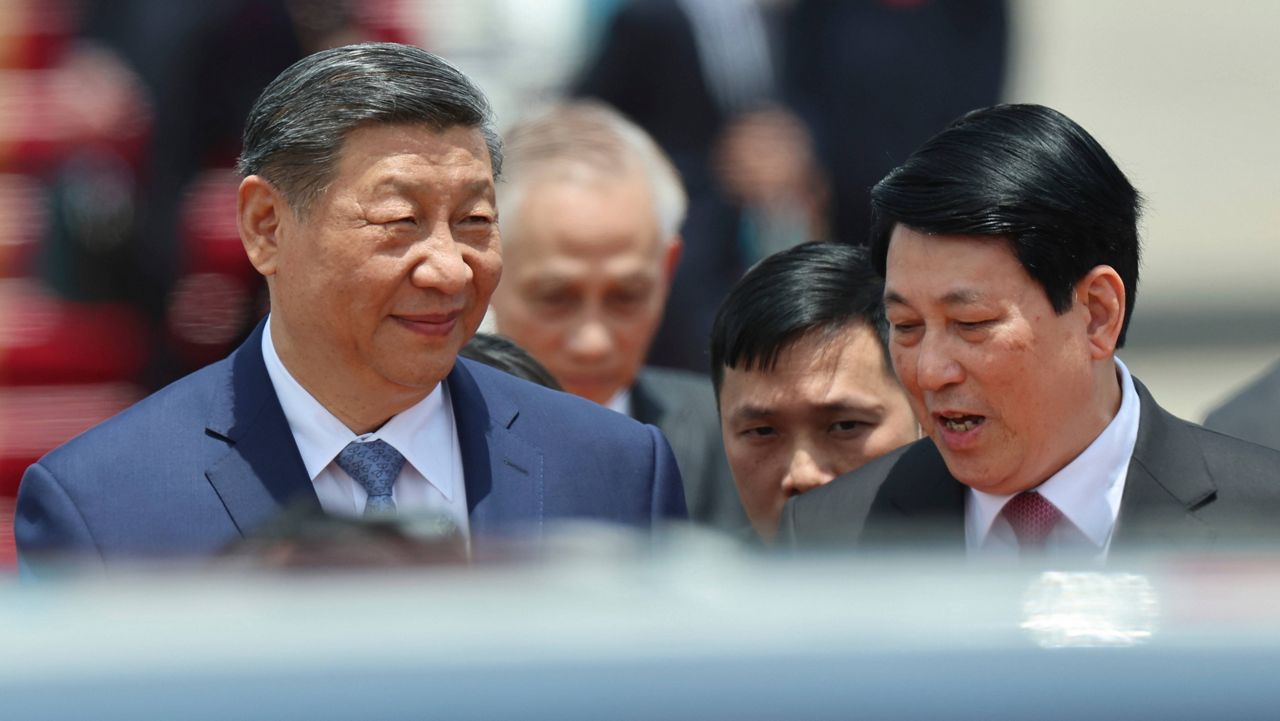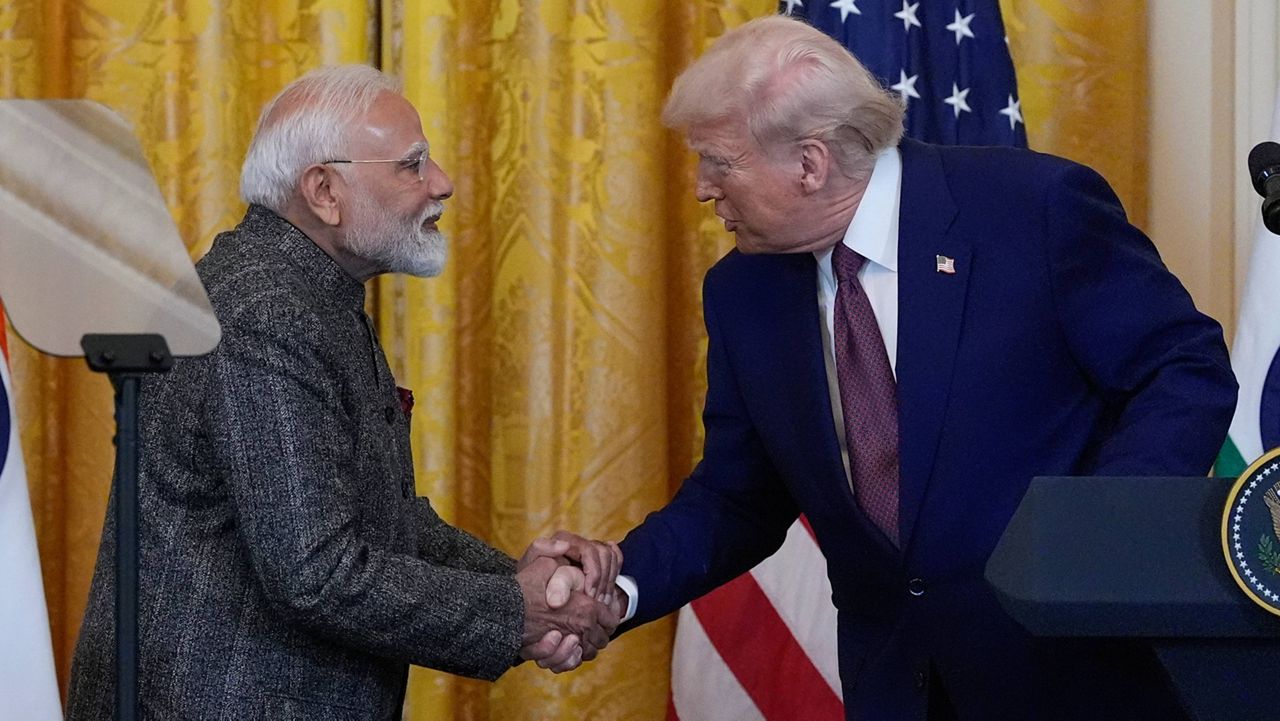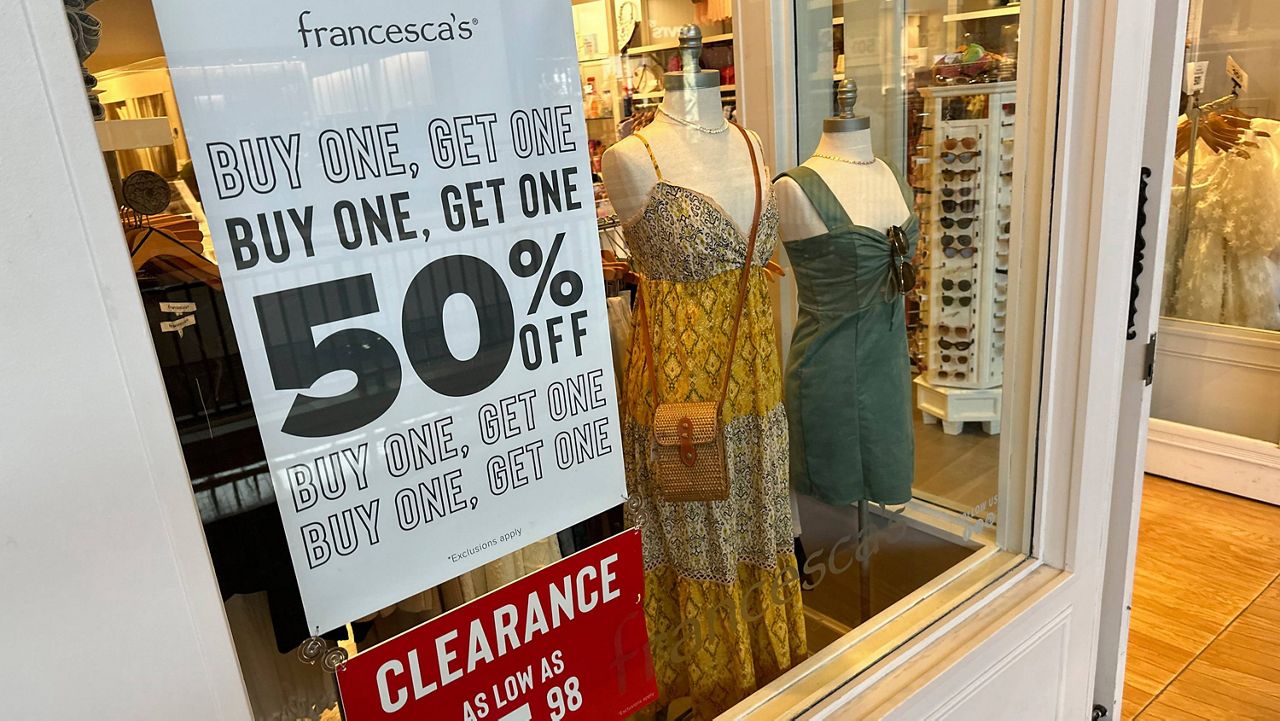WASHINGTON — Frustrated senators from both parties grilled President Donald Trump’s top trade representative at a hearing on Tuesday, with key Republicans expressing concerns that the president’s trade war with allies and geopolitical rivals was far too costly and lacked clear goals.
“It seems like we’ve decided to begin a trade war on all fronts,″ said Republican Sen. Thom Tillis of North Carolina.
He said he wanted to know who in the Trump administration he should hold responsible if the tariffs fail and Americans suffer from higher prices and slower economic growth.
“I’m just trying to figure out whose throat I get to choke if it’s wrong, and who I put up on a platform and thank them for the novel approach that was successful if they’re right.”
“I wish you well,″ he told U.S. Trade Representative Jamieson Greer. ”But I am skeptical.’’
Other Republican senators pressed Greer for details, with Montana Sen. Steve Daines saying he was “worried about the inflationary effect” of the tariffs.
Wisconsin Sen. Ron Johnson said he was “somewhat disappointed” in the administration's inflexibility in allowing exceptions to the tariffs for certain goods or industries.
Indiana Sen. Todd Young asked why the administration seems “to lack a clear set of metrics” for measuring whether the tariffs were successful in empowering the U.S. economy.
Greer avidly defended Trump’s agenda — tariffs on nearly every country on the planet that have sent markets spiraling and sparked fears of a recession among the financial elite worried for their fortunes and everyday Americans with retirement funds at risk — even as the White House has yet to formulate a clear strategy for negotiating more favorable trade relationships with the nations targeted by Trump’s tariffs.
Greer said around 50 nations had already contacted the U.S. to begin negotiations, and Trump later boasted it was 70 countries. However, negotiations have been slowed because “we can’t see that many that fast.”
At the hearing, Greer said, for example, that Vietnam is cutting its tariffs on apples, almonds and cherries. The import taxes are designed to reduce America’s massive trade deficits, but Greer conceded that it will take time and that the adjustment might ”be challenging at times.’’
But one of the United States’ largest trading partners, China, promised to fight Trump’s tariffs “to the end” on Tuesday and the White House pledged to move forward with a combined 104% tariff on billions of dollars of U.S. imports of Chinese goods at midnight. Many consumer goods, including clothes and electronics, are made in China, meaning prices at the register could rise precipitously.
“Other countries signaled that they’d like to find a path forward on reciprocity. China has not said that, and we will see where that goes,” Greer said. “I think we need to work with our closest friends to make sure that we have trading arrangements that work, and if the Chinese are open, we’ll see… But they haven’t signaled that at all. So I don’t think that’s in the very near term with China.”
On Monday, Trump told reporters in the Oval Office that some tariffs might be permanent while others could be subject to negotiation without offering clarity or specifics.
“It can both be true,” he said. “There can be permanent tariffs, and there can also be negotiations.”
Iowa Sen. Chuck Grassley, typically a loyal Republican supporter of the president’s agenda, said on Tuesday he would oppose the tariffs if they are intended only to raise revenue for the federal government and not to open foreign markets to American exports.
Greer said the administration sought fairer trade relationships but did not rule out the possibility that tariffs may continue to collect revenue if countries are “not able to address their non-tariff barriers or their tariffs or the [U.S. trade] deficit fully.”
The Constitution gives Congress authority to set taxes, including tariffs. But lawmakers have gradually ceded that authority to the White House, including Grassley who said he believes “that Congress delegated too much authority to the president.”
Grassley introduced a bill last week with Washington Sen. Maria Cantwell, a Democrat, to rein in the president’s ability to unilaterally implement tariffs and it has garnered another six Republican cosponsors.
“What is the plan?’’ said Oregon Sen. Ron Wyden, the top Democrat on the finance committee. “In the last week, the White House has been all over the map when it comes to these tariffs. There is no clear message about how they were determined, what they’re supposed to accomplish, how long they will be in place, whether they’re a negotiating tool or a move to try and cut the United States off from global trade and usher in a new era of 1870s-style protectionism.’’
“Donald Trump’s aimless, chaotic tariff spree has proven beyond a doubt that Congress has given far too much of its constitutional power over international trade to the executive branch,” Wyden added. “It is time to take that power back.’’
The Associated Press contributed to this report.










